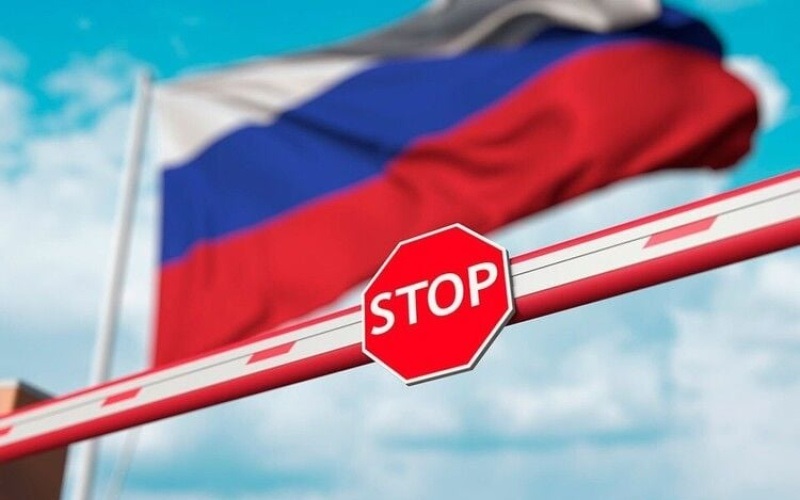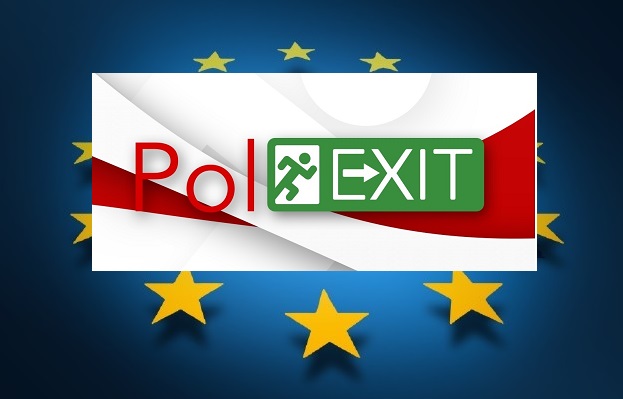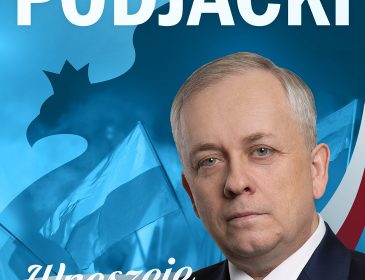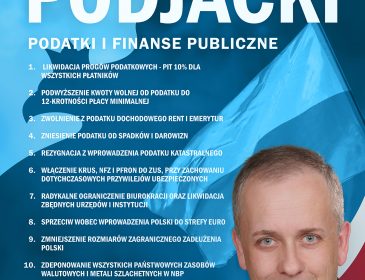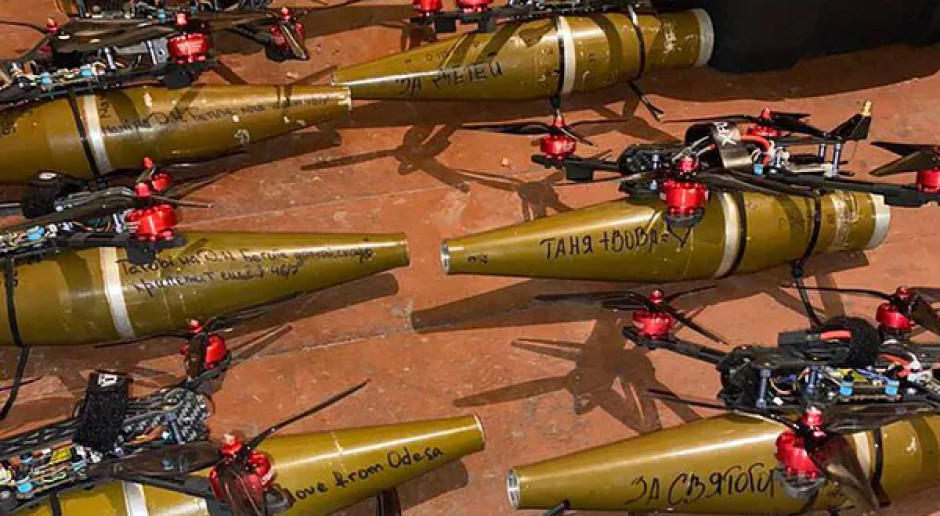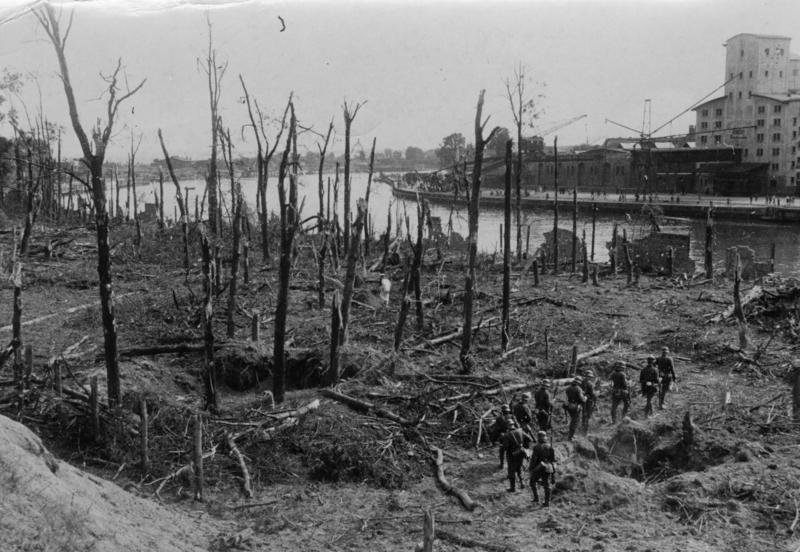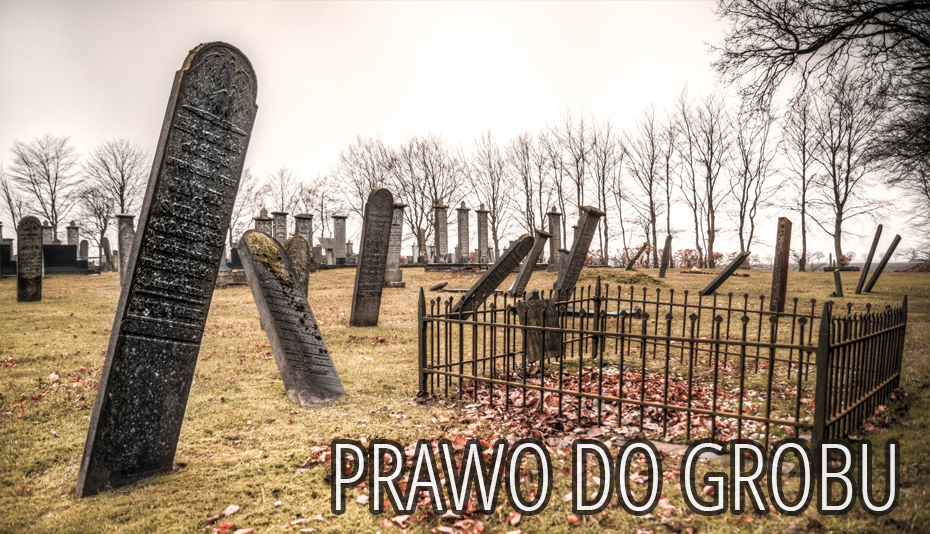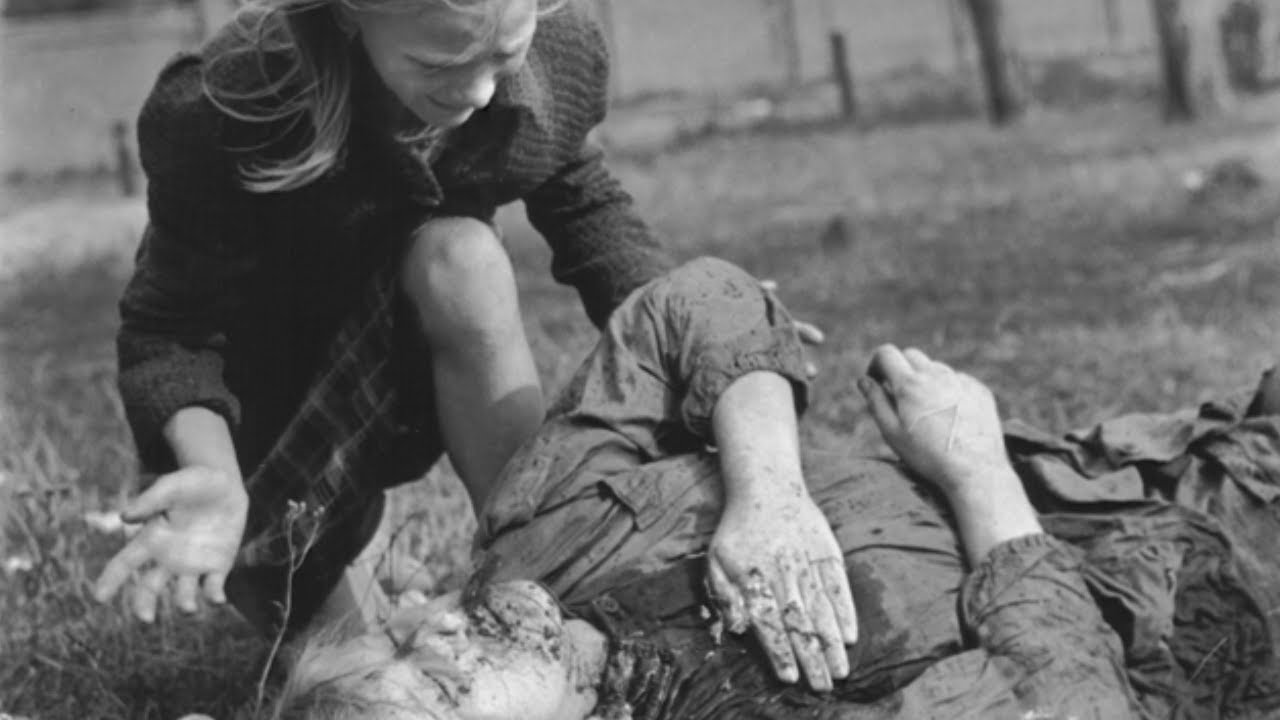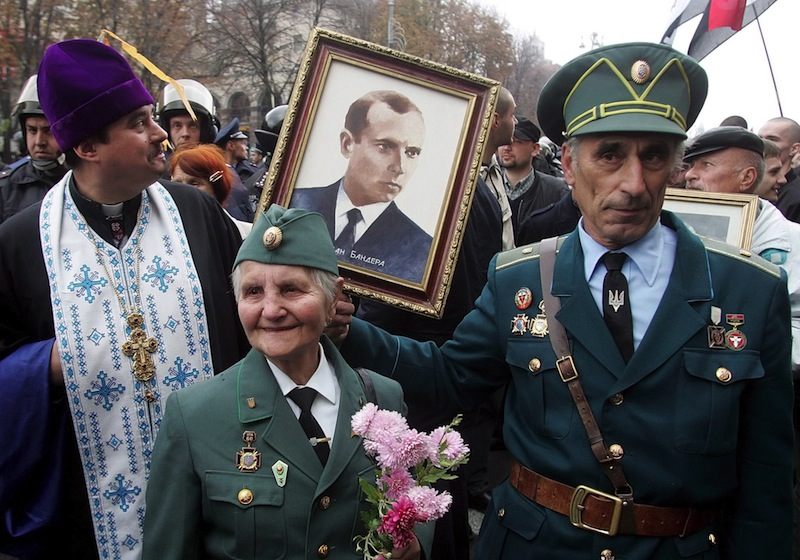-
Bohaterstwo, które podziwiał świat. „W..
POLSKA2 lata temu -
Neon24 – ruska V kolumna
POLSKA3 lata temu -
Nowe osoby w Zarządzie Amiblu
BIZNES3 lata temu -
Mechanizm warunkowości – krok ku Homo Eu..
POLSKA3 lata temu -
Wściekłe i wulgarne „Lemparcice” ..
POLSKA4 lata temu -
Rolnicze poparcie dla prezesa Elewarru – ..
NEWS4 lata temu
Strategia Polski

Friedman kiedyś głosił, że Polska ma szansę być supermocarstwem. Więc był Smoleńsk. Dla nas lekcja, której nie odrobiono. Biorąc za punkt wyjścia poniższy tekst Friedmana sprzed 3 miesięcy, połączmy krytykę z wnioskami.
"Poland’s Strategy is republished with permission of Stratfor."
Poniżej tekst po anguielsku a w linku jego polskie tłumaczenie-parafraza [zakładam, że udana] http://www.rp.pl/artykul/947824,950817-Strategia-dla-Polski.html?p=3 Opcja dla chętnych do podszkolenia się w języku obowiązujących instrukcji geopolitycznych — proponuję otworzyć tekst w Rzepie w osobnym oknie i ustawić je kaskadowo. Komentarz na czerwono
By George Friedman
Narodowość p. Friedmana ma i nie ma znaczenia. Ma o tyle, że niegdyś pisząc o potencjalnej mocarstwowości Polski, miał na myśli naszą rolę jako organizatora Międzymorza i państwa w sojuszu z USA. Jest raczej jasne, że miał na myśli Polskę w myśl pewnej przedwojennej koncepcji jako Rzeczypospolitą "Obojga Narodów". Jednak nie ma znaczenia w tym sensie, że jeśli argumenty miałyby być oczywiste, to liczą się one a nie narodowość autora.
Polish national strategy pivots around a single, existential issue: how to preserve its national identity and independence. Located on the oft-invaded North European Plain, Poland’s existence is heavily susceptible to the moves of major Eurasian powers. Therefore, Polish history has been erratic, with Poland moving from independence — even regional dominance — to simply disappearing from the map, surviving only in language and memory before emerging once again.
Proszę zauważyć, że już w pierwszym akapicie przywołuje autor owe przeskoki od mocarstwowości do znikania z mapy. Proszę też porównać mapy i ich układ (tą powyżej i tą poniżej). Proszę też pamiętać, że mapy poniższe w jakiś sposób przypominają mapę Międzymorza, które usiłował budować Lech Kaczyński. Zawiera jednak jakąś nutę optymizmu, gdy czytamy, że Polska przetrwała w języku i pamięci, by pojawić się na nowo. Proszę nie lekceważyć tego fragmentu.
For some countries, geopolitics is a marginal issue. Win or lose, life goes on. But for Poland, geopolitics is an existential issue; losing begets national catastrophe. Therefore, Poland’s national strategy inevitably is designed with an underlying sense of fear and desperation. Nothing in Polish history would indicate that disaster is impossible.
W polskim tłumaczeniu w Rzepie ostatniego zdania nie ma, a tłumaczy się ono tak: "Nic w polskiej historii nie wskazywało(by) na to, że katastrofa jest niemożliwa." (by) jest jedną z 2 możliwych tu form tłumaczenia. Uważam, że pominięto kluczowe zdanie. Może z oszczędności miejsca. Czytaj: katastrofa jest możliwa.
To begin thinking about Poland’s strategy, we must consider that in the 17th century, Poland, aligned with Lithuania, was one of the major European powers. It stretched from the Baltic Sea almost to the Black Sea, from western Ukraine into the Germanic regions. By 1795, it had ceased to exist as an independent country, divided among three emerging powers: Prussia, Russia and Austria.
Czyli, na samym początku: pamiętajmy, że nawet po okresie potęgi, w tym miejscu w Europie można zniknąć z mapy. Proszę póki co o powstrzymanie sięod rozważań, czy istniejemy jako kraj czy nie. Nie teraz. Proszę zauważyć kolejny fragment: od Ukrainy po rejony germańskie. Przecież wtedy nie było kraju Ukraina. Ale Friedman o niej pisze, choć zapewne zna fakty. Widocznie to ważne. Chyba nie bez powodu umieszczona jest mapa Polski w szczycie zasięgu terytorialnego na wschód, a poniżej mapa w znacznie uczczuplonym kształcie, po której nastąpił rozbiór. Czy dwie poniższe mapy wydają się sugerować, że im szczuplej na wschodzie tym bliżej do rozbiorów? Jeśli tak to najwyżej umieszczona mapa zdaje się potwierdzć, że nic nie wskazuje na to, że katastrofa jest niemożliwa.
It did not regain independence until after World War I — it was created by the Treaty of Versailles (1919) — after which it had to fight the Soviets for its existence. Poland again was brought under the power of a foreign nation when Germany invaded in 1939. Its statehood was formalized in 1945, but it was dominated by the Soviets until 1989.
Kolejna ciekawostka: Polskę utworzył traktat Wersalski.Nam się zdawało, że my sami w XI 1918, ale jednak pamiętajmy, że ZAistnieliśmy dzięki konsensusowi międzynarodowemu, choć PRZEtrwali dzięki zwycięskiemu zawalczeniu przeciw Sowietom. I choć w innych partiac tekstu Friedman pisze o śmiertelnym zagrożeniu osią Berlin-Moskwa i zapewne zna Pakt Ribbentrop-Mołotow, to jednak tu ustawia sprawę tak, że Polska pada od ciosu Niemiec. Czyli już jeden przeciwnik jest dla nas śmiertelnym zagrożeniem.
Informed by its history, Poland understands that it must retain its independence and avoid foreign occupation — an issue that transcends all others psychologically and practically. Economic, institutional and cultural issues are important, but the analysis of its position must always return to this root issue.
Konkluzja wstępu: Polska musi utrzymać niepodległość i uniknąć obcej okupacji. Czyli jest aż tak źle. Widocznie i tam dotarły pogłoski o bezkarności Seryjnego Samobójcy.
Poland’s Elusive Security
Poland has two strategic problems. The first problem is its geography. The Carpathian Mountains and the Tatra Mountains provide some security to Poland’s south. But the lands to the east, west and southwest are flat plains with only rivers that provide limited protection. This plain was the natural line of attack of great powers, including Napoleonic France and Nazi Germany.
Nie chce mi się wierzyć, że p. Friedman pisał tekst na kolanie, zwłaszcza, że po Smoleńsku jego wizje mocarstwowej Polski rodzą cały wachlarz reakcji od pukania się w czoło po podejrzenia o wypuszczanie nas do konkurowania z Rosją by nas narazić na śmiertelne ciosy po których leżymi i nawet nie skamlamy. Autor pisze o PERWSZYM problemie. Ale nigdzie potem już nie przywołuje DRUGIEGO, który przecież zwiastuje, pisząc o dwóch… Jednak uważniejsza lektura go ujawnia:
zdoloność NATO do wypełniania swych zadań jest niejasna tak samo jak przyszłość UE. Czyli znów mamy Niemcy i Rosję, a środku Polskę bez grwarancji.
During the 17th century, the Germans were fragmented in the Holy Roman Empire, while Russia was still emerging as a coherent power. The North European Plain was an opportunity for Poland. Poland could establish itself on the plain. It could protect itself against a challenge from any direction. But Poland becomes extremely difficult to defend when multiple powers converge from different directions. If Poland is facing three adversaries, as it did in the late 18th century with Prussia, Russia and Austria, it is in an impossible position.
Wcześniej był tekst o tym, jak to same Niemcy wystarczyły by Polska padła w 1939. Teraz mowa o TRZECH wrogach, którym sprzeciwiać się NIE SPOSÓB. Dwóch znamy. Kto może być trzecim, który przypieczętuje rozbiory. Uwaga, tu zbliżamy się do sedna sprawy: jaka trzecia siła ma ambicje partycypowania w pokrojeniu polskiego tortu? Kto tu ma interesy, kto ma roszczenia? Ukraina? Wracając do Wersalu, czyli stanowiska mocarstw, życzenie w tej sprawie wyraził Lord Curzon. Granica teraz przebiego m/w podobnie. Więc raczej nie. Potrzymajmy jeszcze czytelnika w napięciu…
For Poland, the existence of a powerful Germany and Russia poses an existential problem, the ideal solution to which is to become a buffer that Berlin and Moscow respect. A secondary solution is an alliance with one for protection. The latter solution is extremely difficult because dependence on Russia or Germany invites the possibility of absorption or occupation. Poland’s third solution is to find an outside power to guarantee its interests.
Jeśli nie jest to jasne po lekturze tekstu w Rzepie: IDEALNYM WYJŚCIEM JEST STANIE SIĘ BUDZĄCYM RESPEKT BUFOREM MIĘDZY ROSJĄ A NIEMCAMI. Pozostałe dwie opcje autor zbija w dalszej części tekstu.
This is what Poland did in the 1930s with Britain and France. This strategy’s shortcomings are obvious. First, it may not be in the interests of the security guarantor to come to Poland’s assistance. Second, it may not be possible at the time of danger for them to help Poland. The value of a third-party guarantee is only in deterring attack and, failing that, in the willingness and ability to honor the commitment.
Gwarancje mają jedynie walor odstrawszający. Smoleńsk pokazał, że nie odstraszają.
Since 1991, Poland has sought a unique solution that was not available previously: membership in multilateral organizations such as the European Union and NATO. Such memberships are meant to provide protection outside the bilateral system. Most important, these memberships bring Germany and Poland into the same political entity. Ostensibly, they guarantee Polish security and remove the potential threat of Germany.
Próbowaliśmy rozwiązań na pozór sensownych…
This solution was quite effective while Russia was weak and inwardly focused. But Polish history teaches that Russian dynamics change periodically and that Poland cannot assume Russia will remain weak or benign in perpetuity. Like all nations, Poland must base its strategy on the worst-case scenario.
… i być może właściwych w okresie przejściowym…
The solution also is problematic in that it assumes NATO and the European Union are reliable institutions. Should Russia become aggressive, NATO’s ability to field a force to resist Russia would depend less on the Europeans than on the Americans. The heart of the Cold War was a struggle of influence across the North European Plain, and it involved 40 years of risk and expense. Whether the Americans are prepared to do this again is not something Poland can count on, at least in the context of NATO.
… ale jednak problematycznych. Być może nie należy liczyć na UE i NATO. Mówi .. Amerykanin.
Moreover, the European Union is not a military organization; it is an economic free trade zone. As such, it has some real value to Poland in the area of economic development. That isn’t trivial. But the extent to which it contains Germany is now questionable. The European Union is extremely stressed, and its future is unclear. There are scenarios under which Germany, not wanting to shoulder the cost of maintaining the European Union, may loosen its ties with the bloc and move closer to the Russians. The emergence of a Germany not intimately tied to a multinational European entity but with increasing economic ties with Russia is Poland’s worst-case scenario.
Niebawem UE może albo nie istnieć albo nie powstrzymywać skutecznie Niemiec przed budowaniem własnej pozycji w ich śmiertelnym dla Polski sojuszu z Rosją. Ale śmierć ma nadejść kiedy będziemy się stawiać TRZEM wrogom.
Obviously, close ties with NATO and the European Union are Poland’s first strategic solution, but the viability of NATO as a military force is less than clear and the future of the European Union is clouded. This is at the heart of Poland’s strategic problem. When it was independent in the 20th century, Poland sought multilateral alliances to protect itself from Russia and Germany. Among these alliances was the Intermarium, an interwar concept promoted by Polish Gen. Jozef Pilsudski that called for an alignment comprising Central European countries from the Baltic Sea to the Black Sea that together could resist Germany and Russia. The Intermarium concept never took hold, and none of these multilateral alliances has proved sufficient to address Polish concerns.
No i wreszcie jak z tym Buforem. Polska próbowała za Piłsudskiego tego najlepszego rozwiązania — Międzymorza — ale nie wyszło. Czy autor sugeruje co poszło nie tak? W akapitach powyżej i jeszcze kilka powyżej zaznaczyłem na niebiesko słowa bilateral i multilateral. Są one kluczem do zrozumienia rady Friedmana. Wielostronne traktaty nie działają. Zresztą, nie zadziałały też plany Kaczyśnkiego, oparte na porozumieniach wielostronnych, tak skąd inąd. I nie zadziałają dla Polski. Na rzecz Polski — kto wie czy nie mocarstwowej — zadziałać może DWUSTRONNE porozumienie w sprawie Międzymorza. Jest zatem być może jakiś JESZCZE JEDEN partner, który przyspieszyłby powstanie Międzymorza i uczynił z nas skuteczny bufor. A jeśli tak, to taki, który ma tu interesy i w jakiś sposób traktuje reren jako swój, bo przecież inaczej sojusz byłby egzotyczny. Być może to TEN SAM partner, który — traktowany jako wróg (niezaspokojone roszczenia/ambicje) — wbiłby nam gwóźdź do trumny.
A Matter of Time
Rzepa zmieniła ten podtytuł na Trzy strategie. No cóż, czytają a nie rozumieją NIE MA TRZECH STRATEGII. JEST KWESTIA CZASU. Dwie strategie zostają przez autora ukazane jako iluzoryczne:
Poland has three strategies available to it. The first is to do everything it can to keep NATO and the European Union viable and Germany contained within them. Poland doesn’t have the power to ensure this. The second is to create a relationship with Germany or Russia that guarantees its interests. Obviously, the ability to maintain those relationships is limited. The third strategy is to find an outside power prepared to guarantee its interests.
Polska nie jest w stanie uwiązać Niemiec w strukturze UE i NATO. Nie damy też rady utrzymać takich stosunków z Niemcami i Rosją jakie byśmy chcieii…
That power is currently the United States. But the United States, after the experiences in the Islamic world, is moving toward a more distant, balance-of-power approach to the world. This does not mean the United States is indifferent to what happens in northern Europe. The growth of Russian power and potential Russian expansionism that would upset the European balance of power obviously would not be in Washington’s interest. But as the United States matures as a global power, it will allow the regional balance of power to stabilize naturally rather than intervene if the threat appears manageable.
Trzecie mocarstwo… OBECNIE USA. USA pozwolą by rownowaga sił w regionie ustabilizowała się w sposób naturalny o ile ryzyko jest pod kontrolą. Widać jest. Ale owa trzecia strategia — trzeciego mocarstwa-gwaranta,które kiedyś może być inne niż USA — no może…, zobaczmy…
In the 1930s, Poland’s strategy was to find a guarantor as a first resort. It assumed correctly that its own military capability was insufficient to protect itself from the Germans or the Soviets, and certainly insufficient to protect itself from both. Therefore, it assumed that it would succumb to these powers without a security guarantor. Under these circumstances, no matter how much it increased its military power, Poland could not survive by itself.
… bo jak pokazuje historia, Polska sama z siebie tu nie przetrwa…
The Polish analysis of the situation was not incorrect, but it missed an essential component of intervention: time. Whether an intervention on Poland’s behalf consisted of an attack in the west or a direct intervention in Poland, the act of mounting such an intervention would take more time than the Polish army was able to buy in 1939.
… tylko, że musimy mieć na tyle siły, żeby doczekać nadejścia pomocy.
This points to two aspects of any Polish relationship to the United States. On one hand, the collapse of Poland as Russia resurges would deprive the United States of a critical bulwark against Moscow on the North European Plain. On the other hand, intervention is inconceivable without time. The Polish military’s ability to deter or delay a Russian attack sufficiently to give the United States — and whatever European allies might have the resources and intent to join the coalition — time to evaluate the situation, plan a response and then respond must be the key element of Polish strategy.
Najpierw zdawało mi się że w Rzepie był jakiś błąd w tłumaczeniu. Ale nie. Więc wygląda na to, że NATO NIE MIAŁO do tej pory CZASU na rozważenie strategii pomocy Polsce na wypadek ataku (tak!). Czytaj: nikt nie traktował poważnie ewentualności bronienia nas… Widocznie idea ta dla Zachodu była egzotyczna.
Poland may not be able to defend itself in perpetuity. It needs guarantors whose interests align with its own. But even if it has such guarantors, the historical experience of Poland is that it must, on its own, conduct a delaying operation of at least several months to buy time for intervention. A joint Russo-German attack, of course, simply cannot be survived, and such multifront attacks are not exceptional in Polish history. That cannot be dealt with. A single-front attack could be, but it will fall on Poland to mount it.
I znów: ataku z dwóch stron nie da się przetrwać. A takie ataki w dziejach Polski nie są niczym niezwykłym. Da się przetrwać wojną na jednym kierunku. Ale, uwaga, żeby tłumaczyć ostatnie zdanie po "but" trzeba mocno nagiąć język by przetłumaczyć je "ale to Polsce przypadnie by się nań przygotować" Raczej (!!!) "Ale to Polsce przypadnie go przeprowadzić."
Polska potrzebuje gwaranta, który będzie miał ZBIEŻNE interesy. Ale, PÓKI CO, jesteśmy zdani na siebie. Na wypadek konfliktu musimy się utrzymać kilka miesięcy.
This is a question of economics and national will. The economic situation in Poland has improved dramatically over recent years, but building an effective force takes time and money. The Poles have time, since the Russian threat at this point is more theoretical than real, and their economy is sufficiently robust to support a significant capability.
Polska ma czas by się na w/w przygotować. W tym momencie pojawia się pytanie: skąd wiadomo, że jednak nie dojdzie do sojuszu Niemiec i Rosji? Czyżby wiadomo było, że ich interesy nie będą zbieżne? Ale, jak wcześniej pisano, już atak jednej ze stron może być śmiertelny. Ale przecież to nie Niemcy są tym nowym supermocarstwem, które może mieć z Polską zbieżne interesy. Stawianie na Niemcy autor już odrzucił. Może więc ów nowy sojusznik ma dośc wpływów w Niemczech byudaremnić taki sojusz, o ile ów potencjalny sojusznik nie będzie naszym wrogiem, czyli jeśli weźmiemy pod uwagę jego interesy?
The primary issue is national will. In the 18th century, the fall of Polish power had as much to do with internal disunity among the Polish nobility as it had to do with a multifront threat. In the interwar period, there was will to resist, but it did not always include the will to absorb the costs of defense, preferring to believe that the situation was not as dire as it was becoming. Today, the will to believe in the European Union and in NATO, rather than to recognize that nations ultimately must guarantee their own national security, is an issue for Poland to settle.
Jedność i wola narodowa. Tu oceniam, że intencje piszącego nie muszą być wcale takie złe: życzy nam jedności. Nie możemy jednak łudzić się, że jest lepiej niż jest w istocie. Trzeba ponieść koszty. Trzeba zapłacić. Aha. I przywołane lat końca XVIII w i Międzywojnia chyba nieprzypadkowe: jakie to podziały istniały wtedy w Polsce? czy tylko wśród szlachty? A nawet jak wśród szlachty, to o jakie elity chodzi?
Some diplomatic moves are possible. Polish involvement in Ukraine and Belarus is strategically sound — the two countries provide a buffer that secures Poland’s eastern border. Poland likely would not win a duel with the Russians in these countries, but it is a sound maneuver in the context of a broader strategy.
Autor ocenia, że zaangażowanie Polski na Białorusi i na Ukrainie jest strategicznie słuszne, bo te kraje dadzą Bufor: ale nie wraz z nami, tylko dadzą bufor NAM. Polska nie wygra z Rosją pojedynku w tych krajach, ale w ocenie Friedmana jest to z naszej strony manewr właściwy w szerszym kontekście. To ważny moment! W szerszym kontekście, czyli w kontekście wejścia ZA CZAS JAKIŚ owego nowego supermocarstwa, które pewnie pomoże nam wygrać ten pojedynek.
Poland can readily adopt a strategy that assumes permanent alignment with Germany and permanent weakness and lack of aggressiveness of Russia. They might well be right, but it is a gamble. As the Poles know, Germany and Russia can change regimes and strategies with startling speed. A conservative strategy requires a bilateral relationship with the United States, founded on the understanding that the United States is relying on the balance of power and not the direct intervention of its own forces except as a last resort. That means that Poland must be in a position to maintain a balance of power and resist aggression, buying enough time for the United States to make decisions and deploy. The United States can secure the North European Plain well to the west of Poland and align with stronger powers to the west. A defense to the east requires Polish power, which costs a great deal of money. That money is hard to spend when the threat might never materialize.
Czyli: Nie można zakładać stałego związku z Niemcami i przekonania, że Rosja nie będzie agresywna. W tych krajach rządy i strategie mogą się zmieniać w mgnieniu oka. USA jest opcją przy założeniu że grają one stosunkiem sił a nie bezpośrednią interwencją. Na Zachodzie interweniować są w stanie ale na Wschodzie to Polacy muszą przeciwstawi zagrożeniu siłę. A to będzie kosztowało mnóstwo pieniędzy Pieniędzy, których Polska nie wyda dopóki zagrożenie się nie ZIŚCI.
Artykuł został zamieszczony 28 VIII 2012. Od wakacji wiele spraw nabrało przyspieszenia: stan polskiej gospodarki i narodowej woli ujawnił się na Olimpiadzie, w bankructwach licznych firm po Euro ’12, i nasileniu bezkarności Seryjnego Samobójcy. Na zapytanie czy jest wola do konfrontacji z Rosją, USA otrzymują odpowiedź negatywną. Czy zatem jest sens zmieniania polityki pod szylbem Barracka Obamy, wychowanka komunistów? Nie. Mimo rozkładu głosów, elektorskim stosunkiem 3-2 wygrywa kontynuacja polityki, która prawdopodobnie pogrążyła Kaczyńskiego. To może być bez związku a może go mieć.
Jest pewne, że zaproponowano nam swego rodzaju ultimatum, albo się postawicie i pójdziecie na zbrojenia i konfrontację z Rosją (a sa przetargi na śmigłowce itp.) a tym samym dacie sobie szansę na obronę, albo będzie z wami marnie. Ultimatum postawiono w sytuacji, gdy to wlaśnie stosowanie się do takich sugestii zamąciło w głowie elicie PiS. To właśnie szydera z pana Friedmana była leitmofivem polsko-rosyjskiej wymiany zdań w internecie po 10 IV 2010. Wydaje się, że USA nie pójdzie w sukurs Polsce w najbliższych latach, ale jest w tekście Friedmana jakieś zawoalowane przesłanie co do supermocarstwa, które miałoby zbieżne interesy. Więc przywoływanie tego tekstu w polskich mediach teraz, zdaje się świadczyć o tym, że dla wielu nie ma innego wyjścia. Jeśli owo supermocarstwo, mające tu interesy, może odwieść Niemcy od sojuszu z Rosją i rozbioru naszego Kraju, to może ono także popchnąć oba kraje do takiego rozbioru, i być może nawet w nim uczestniczyć. No chyba, że uzyska z nami takie dwustronne stosunki, że mu się opłaci, tylko co? Wspólny atak na Rosję? Póki co, tak sądzili niektórzy 2 lata temu: tu pada Polska, tam Syria, jako kraje wymierzone w jakieś potęgi. Więc kto wie czy i to kolejne mocarstwo ma jeszcze ochotę na taki układ zaczepny.
Czy można tu coś konstruktywnego zaproponować? Wydaje się, że albo Polska wykonuje ruchy desperata, albo rządzą nią elity, które już poddały kraj. Może to nawet mniej groźne niż zaczepianie chuligana licząc na pomoc starszego kolegi, który nas olewa albo wystawia za fajki. A może nie. Podstawą jakiejkolwiek gry międzynarodowej jest siła. Nie miał jej Kaczyński próbując tworzyć Międzymorze. Nie panował nawet nad własnym podwórkiem. Proponuję zamiast się podniecać grą międzynarodową, w której po Smoleńsku jesteśmy na lata zmarginalizowani, tworzyć takż Polskę w której istnieją realne więzy, od tych rodzinnych i sąsiedzkich, realne zaangażowanie, realna niezależność i realnie rozumiana polskość jako realnie spajająca idea, a więc przynajniej realna siła ludzi zdrowych, żywotnych, niezależnych i wiedzących czego chcą. Na tym coś można zbudować. Póki co, nie ma ani Friedmanowskiej determinacji narodowej woli, ani gospodarczej siły. I oby się nie skończyło chaosem. Bo po kilkudziesięciu latach eksperymantów i wojny informacyjnej jesteśmy, jako naród, zupełnie zdezorientowani
"Poland’s Strategy is republished with permission of Stratfor."
Sprawa ludzi dobrej woli jest wspólna







